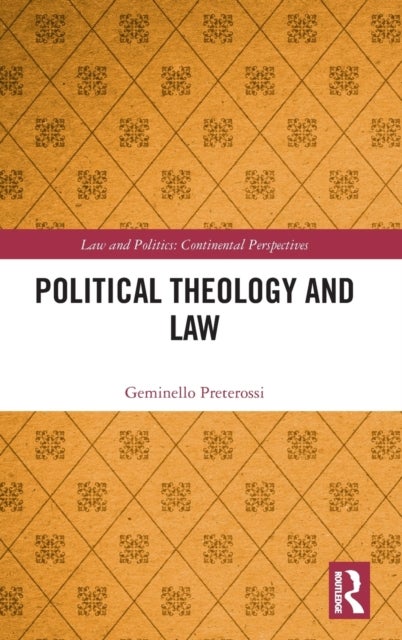
Political Theology and Law av Geminello Preterossi
1629,-
<P>This book addresses two main questions. Can political theology be overcome? And, is what today - in referring to neoliberalism and its genealogy - many define as "economic theology" truly an alternative to political theology, as Foucault has claimed and as Agamben does today? </P><P>As a first step, the book addresses and clarifies various misunderstandings about the notion of political theology, in its multiple and even opposite meanings. It then focuses on a conceptualisation inaugurated by Carl Schmitt, which sees political theology as the eloquent matrix of modern politics: insofar as the latter produces and continuously re-elaborates an "excess" that does not belong to it, its core remains theological-political, although secularised. The bulk of the book then pursues a reading of the analogic connection between juridico-political concepts and theological-metaphysical concepts; arguing that, although the ''turn'' to economic theology is indeed another form of political theology,








